Become a professional day trader
Have you been looking for another source of income that you can access from the comfort of your own home? Day trading might offer you that source. It is with day trading as with most other areas of business; preparation is key. You will need to understand your cost factors and your possible revenue stream before beginning. In this article, we take you through what day trading is and how to do it.
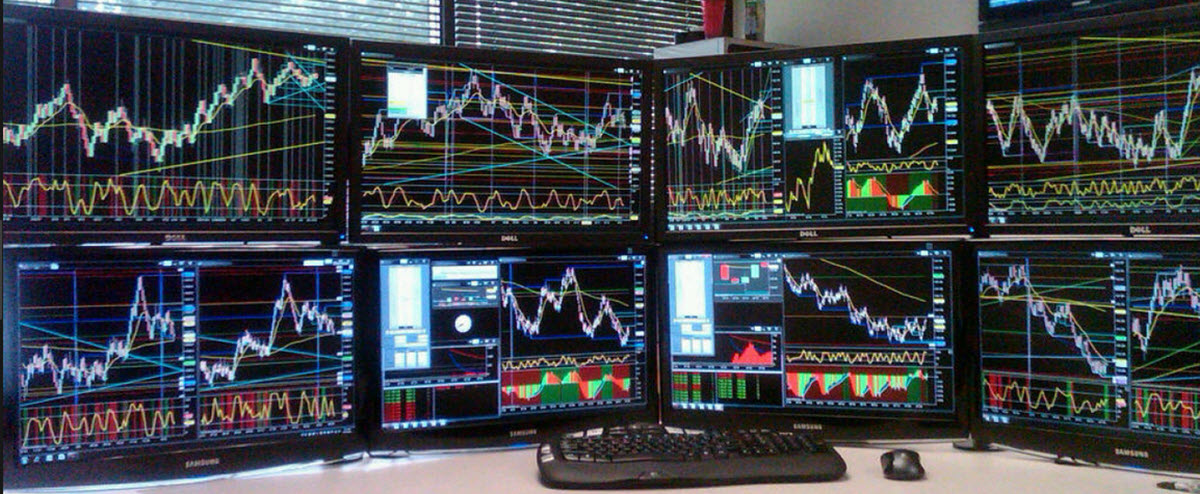
What is day trading?
-
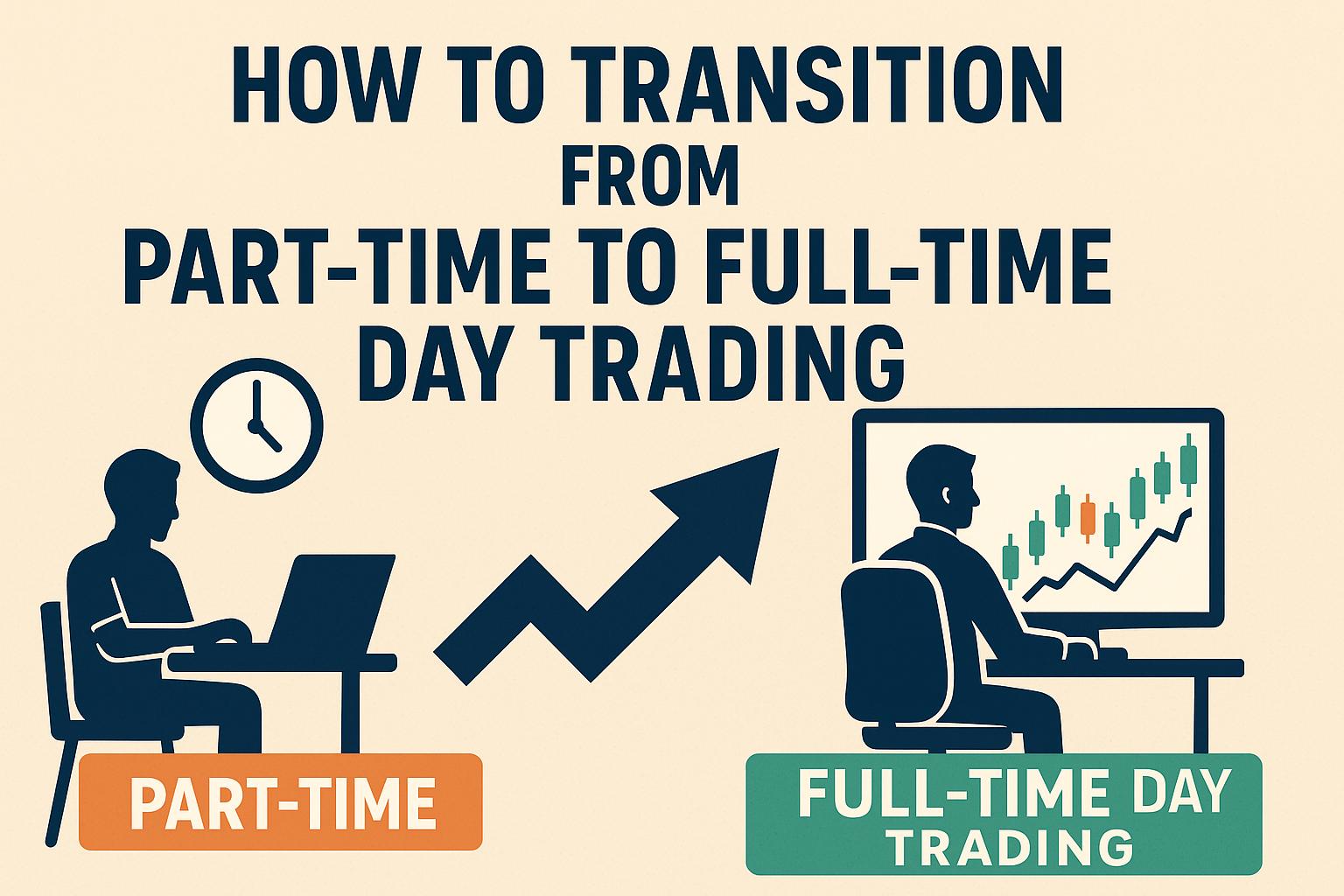
How to Transition from Part-Time to Full-Time Day Trading
-
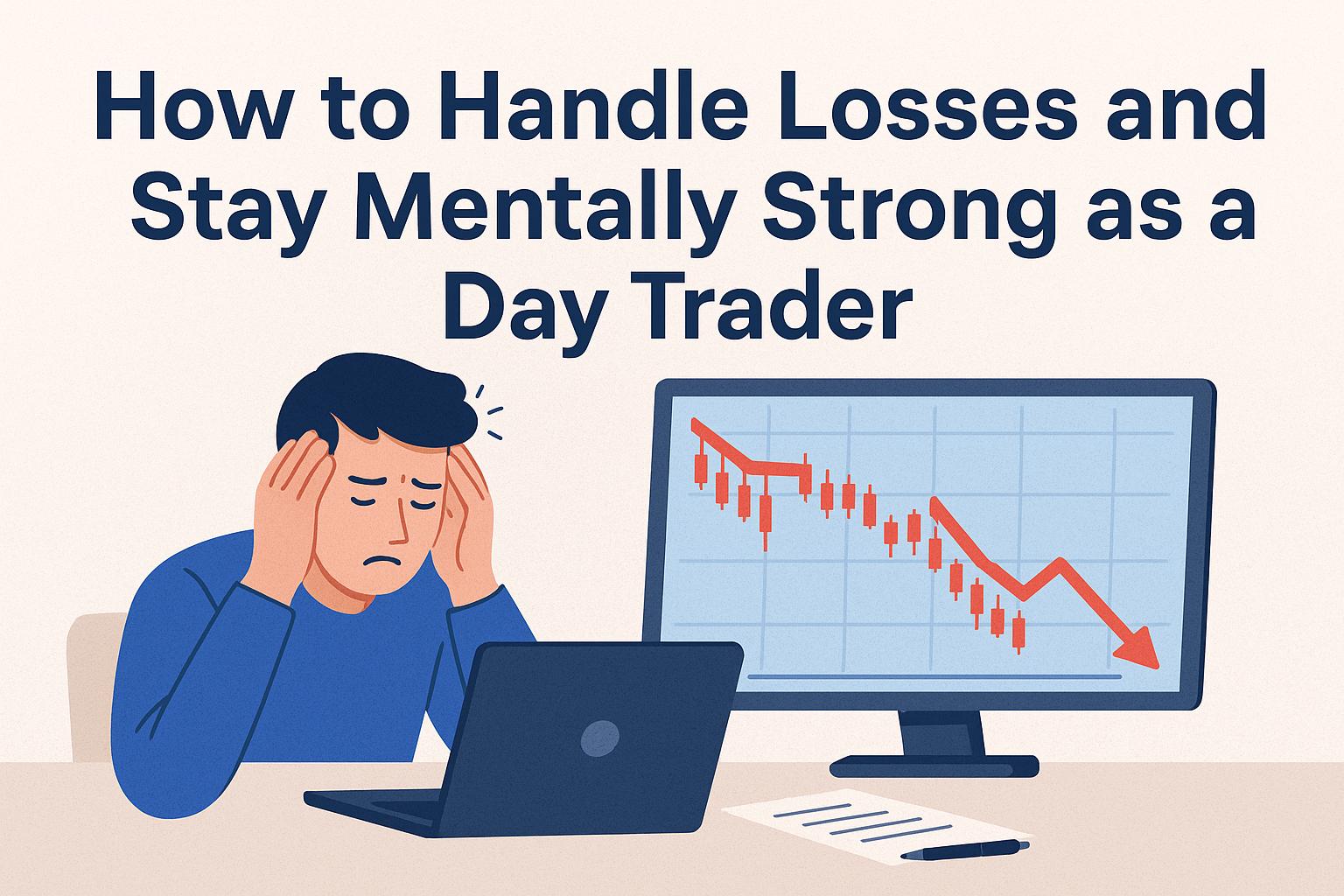
How to Handle Losses and Stay Mentally Strong as a Day Trader
-
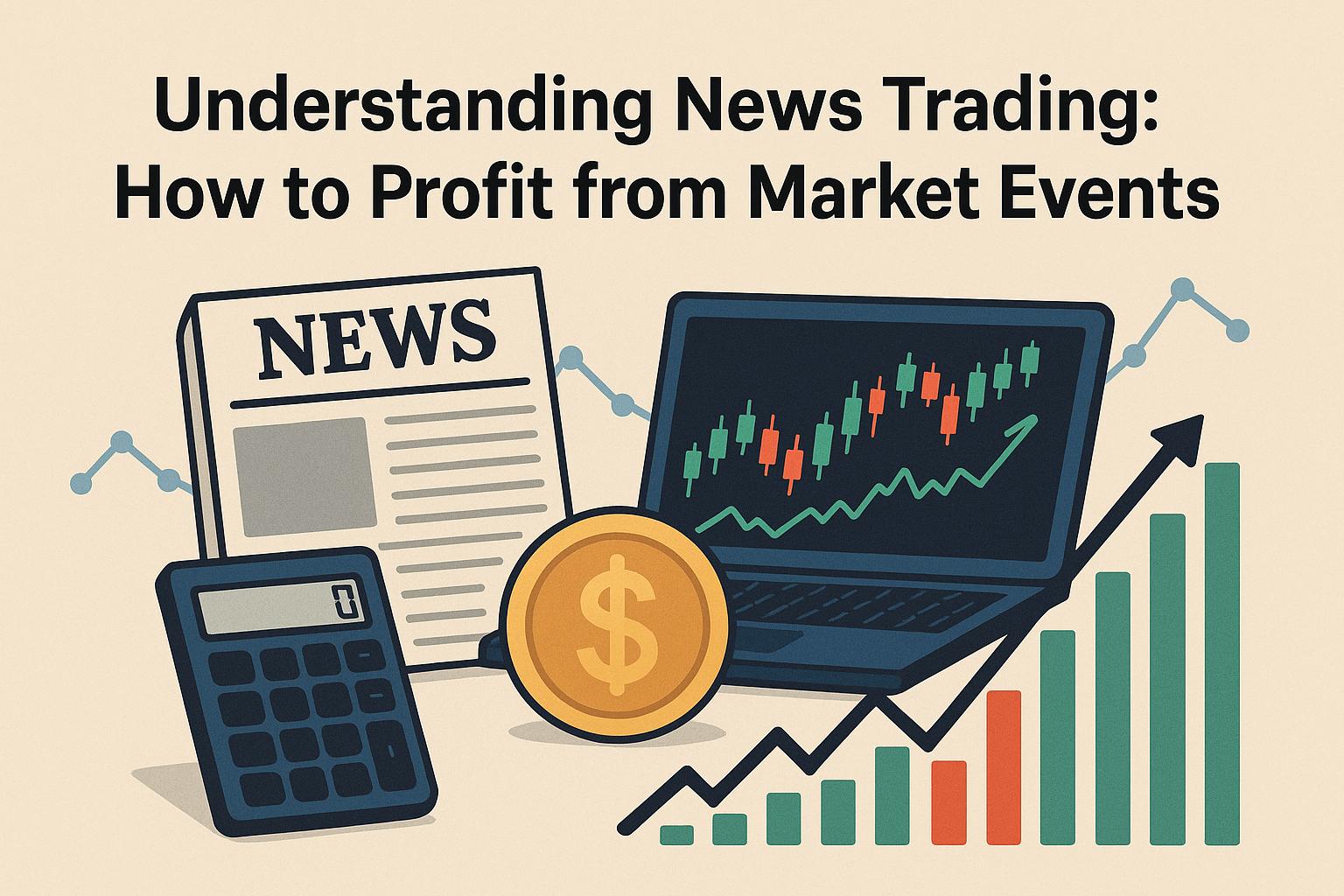
Understanding News Trading: How to Profit from Market Events
-
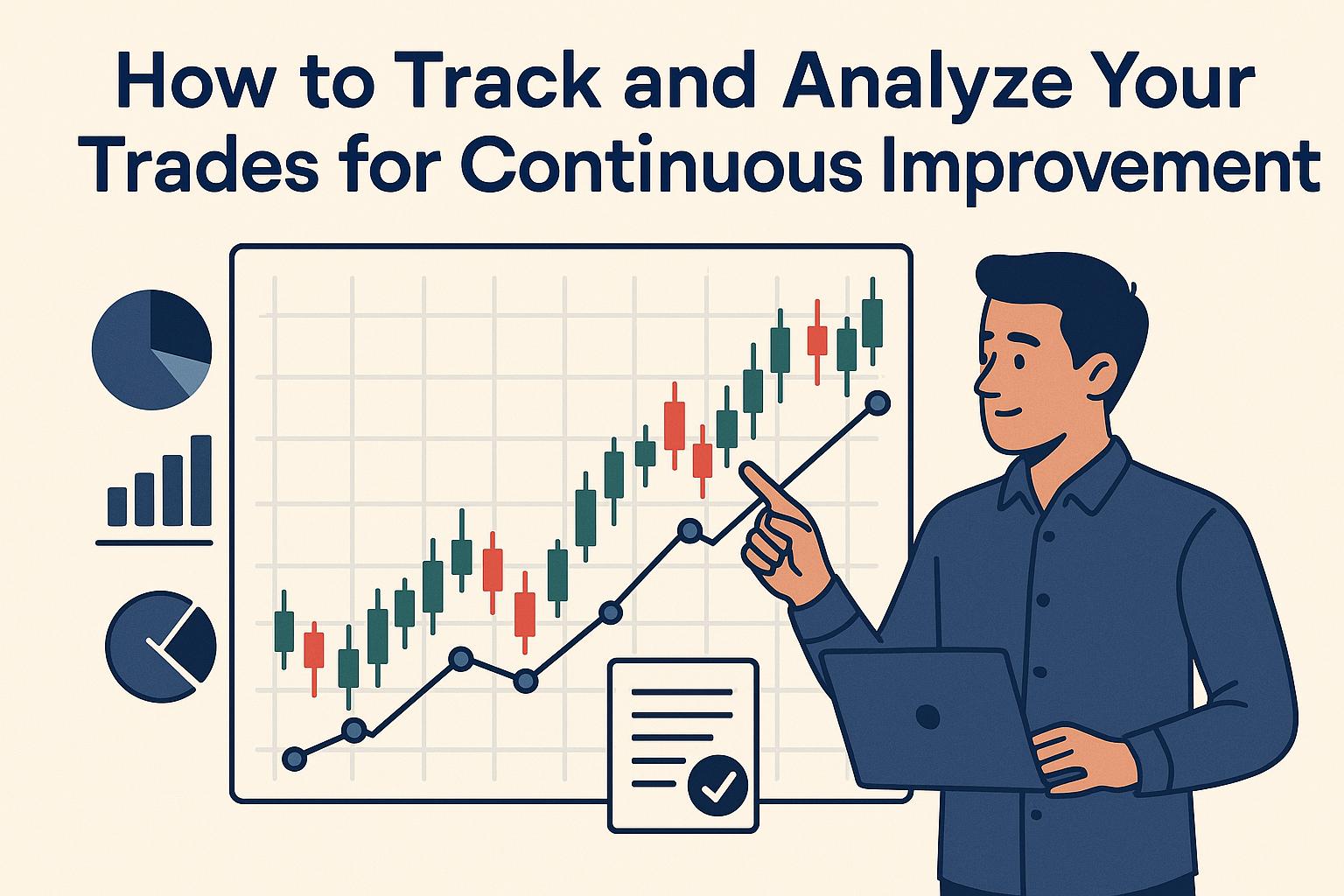
How to Track and Analyze Your Trades for Continuous Improvement
-

How to Avoid Overtrading and Improve Discipline
-
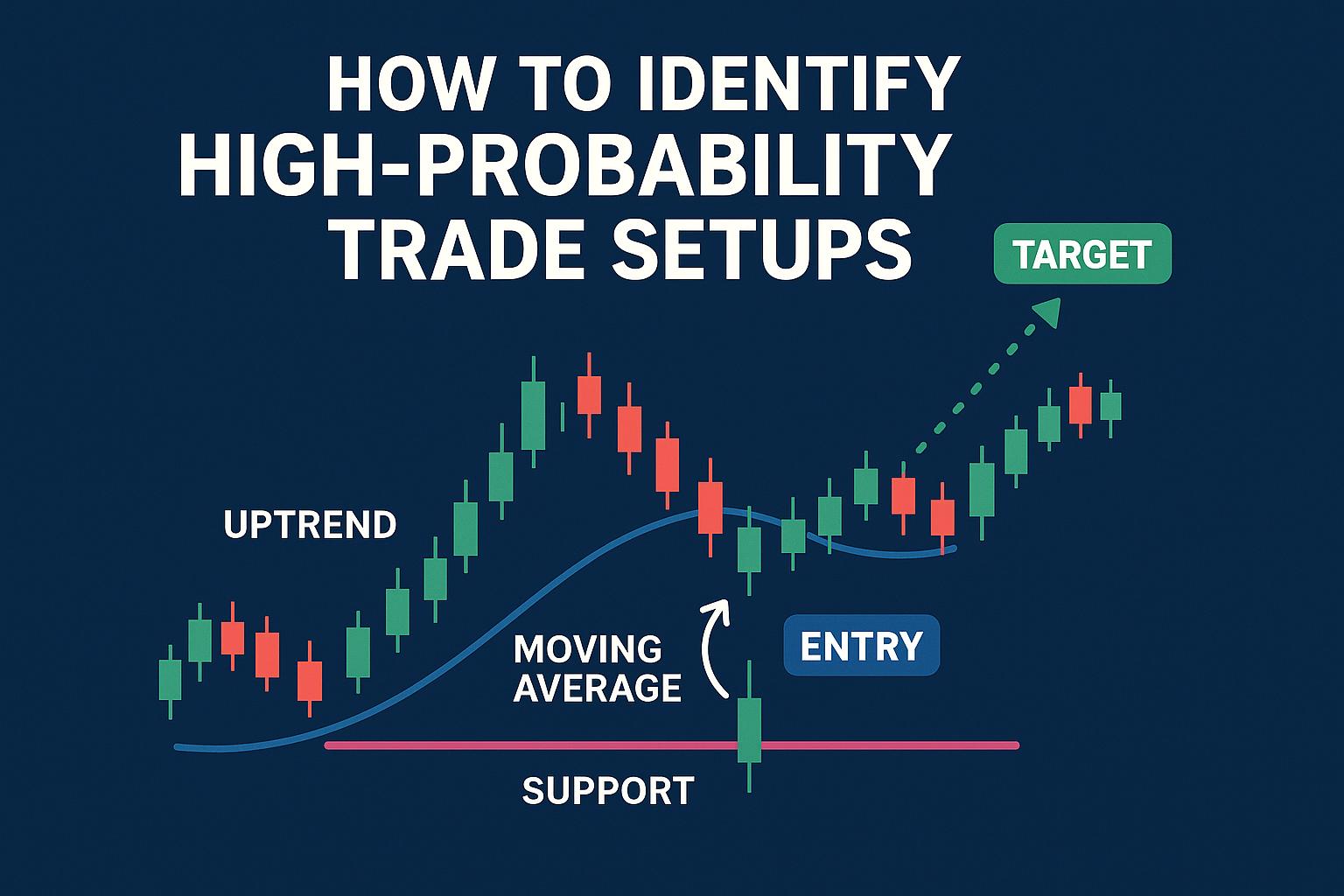
How to Identify High-Probability Trade Setups
Day trading is a method of trading where positions are opened and closed within the same trading day. Positions are never kept open into another trading day.
Day traders typically seek to profit from the small price movements that we normally see within a trading day. It differs from trading strategies where positions are kept open over night, e.g. swing trading (where positions are usually kept open for weeks or a few months) and buy-and-hold strategies (longer term investing).
So, what are the main benefits of day trading? Well, one of them is that you will close all positions before the trading day is over. Day trading can be very stressful and intense during the active trading session, but you will close all positions before the trading day comes to an end. Many traders like this, as it means never having to worry about open positions when you are not actively trading. For many, day trading makes it easier to separate the trading from the rest of their lives. If you keep positions open longer, you might develop a habit of constantly checking price movements and obsess over your open positions even when you are not actively in front of the trading screen.
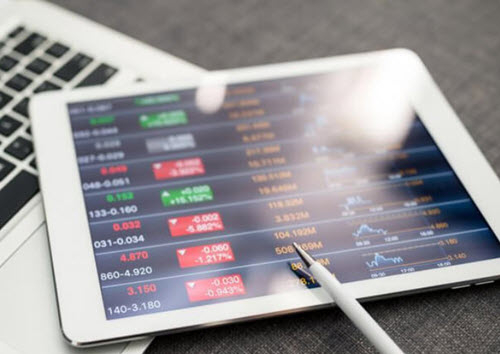
Another upside with day trading is something that it shares with other types of online trading and investing – you can do it anywhere as long as you have a suitable device (computer or smartphone) and an internet connection. The whole world can be your office and you can work from anywhere, be it in your own home, a train through Europe or on a beach somewhere warm as long as the internet connection is sufficiently fast and stable.
You do not need a big capital to start day trading and many novice day traders use a computer (or smartphone) they already own.
Now, you might begin to see a rosy picture in your head where you spend two hours a day day trading and the rest of the day sipping Margaritas on a sunny beach, but the reality is not that wonderful – at least for most day traders. If you think you have found an easy and effortless way to make a lot of money while only working a few hours a day, you are likely to be disappointed. Many people think that day trading means working less, but that is far from reality.
When you are a day trader working for yourself, you have to fill all the many roles of a company, including points such as market research and business administration. Day trading is much more than just trade execution.
Day traders that are profitable in the long run are typically people who devote a lot of time and energy into learning about trading, trading strategies, market dynamics, market psychology, trading tools, and more.
You might only trade actively for an hour or two a day, but you will need to be a knowledgeable and skilled trader to find those trades that are worth doing. You will need to put time and effort into continuos learning, keeping up with the markets, and more. You will need to develop strategies for trading and risk management, and then adjust them as necessary. The importance of proper research is hard to overstate.
You will also need to carry out quite a lot of administration, e.g. keeping a trading log and analysing it, book keeping, and making sure you pay your taxes correctly.
How to begin day trading
If the points laid out above seems interesting to you, you might be wondering how to get started. We will therefore take a look at a few points that are good to look into and work through as you proceed to start your day trading career.
You Need to Understand Day Trading
Day trading involves executing multiple trades in a single day to take advantage of short-term price fluctuations. Day traders do not hold positions overnight. Thereby, they avoid the risks associated with overnight market changes.
Before you begin, it’s essential to educate yourself about the fundamentals of trading. This includes understanding the asset class you are interested in and the factors that influence prices for that class.
In addition to understanding the markets, familiarize yourself with trading terms like leverage, margin, stop-loss, and take-profit. There are countless free resources online, including tutorials, e-books, and YouTube videos, that can help you get started. Do not get all your information from one source – and especially not one broker. Be critical, evaluate the information you find, and keep your bullshit detector in active mode.
Examples of asset types that are available for day trading:
- Forex
Currency exchange rates are often affected by economic data, interest rates, and geopolitical events. - Stocks
Prices movements are often based on earnings reports, industry trends, and overall market sentiment. - Cryptocurrencies
Cryptocurrency exchange rates are highly volatile and commonly influenced by market speculation, adoption trends, and regulatory developments. It is today possible to gain exposure to cryptocurrency exchange rates without actually buying, owning and selling cryptocurrency. You can for instance use CFDs.
Choose Your Market
Selecting a specific asset type to focus on is crucial for new day traders. It’s better to master one market than to spread yourself too thin. Forex is a popular choice for beginners due to its high liquidity and 24/5 trading. Stocks are also popular, especially stocks with high liquidity. Cryptocurrency speculation offers 24/7 trading, but is more volatile and the regulatory situation is more complicated.
Each asset type has unique characteristics, so consider your risk tolerance, interests, and available capital when making your decision.
Develop a Trading Plan and Risk Management Strategy
A trading plan is the backbone of a successful day trading strategy. Examples of points that should be included:
- Your Goals. Define your financial objectives, such as daily profit targets or annual growth rates.
- Trading Hours. Decide when you’ll trade. Some markets, like forex, are open 24 hours, while stocks are limited to specific trading sessions.
- Risk Management Rules. Determine how much you’re willing to risk per trade (e.g., 1–2% of your trading account) and how much that can be in open positions at any given moment.
- Strategies. Choose and refine trading strategies that suit your goals, such as scalping (quick trades) or trend following.
- Leverage. Decide if and how you will use leverage, and what the boundaries will be.
Having a clear plan helps you stay disciplined and avoid impulsive decisions during the trading day.
Learn More About How to Pick the Right Broker For Your Day Trading
Your broker will have a huge impact on your trading experience and bottom line. Before you start day trading, learn more about who to find a broker that is suitable for your particular trading strategy and your preferences. Do not pick a broker based on that cool add or a social media celebrity endorsement.
Day trading and risk
Day trading in inherently risky. If someone is trying to convince you that day trading is low risk or even risk free, they are probably trying to sell you some scam-product.
Understanding how much risk goes into certain trades will make able to determine if they are right for you and fit within your strategy.
Having a proper and detailed risk management strategy in place is essential if you want to become a long-term profitable day trader.
Many brokers offer leverage, allowing traders to control larger positions with less capital. While leverage will amplify profits, it also amplifies losses. Using leverage adds another element of risk to the equation and it is important that you do not use leverage without fully understanding what it entails. If you want to use leverage, you need to adjust your risk management plan to reflect the added risks involved.
Note: Simply signing up with a broker and depositing money also involves risk. Regrettably, there are fraudsters out there posing as legitimate brokers. Exactly how they operate vary. Some are pretty rudimentary and will be satisfied to simply steal your first deposit. Others are more savvy and can for instance play a long-con where they function well as brokers until you realize that they are manipulating price data on the trading platform to make certain profitable trades appear to be losses. There are also scammers who don´t care much about that first $10 deposit – what they really want is all your personal information so they can carry out identity theft. The first step to avoid fraudsters is to only use brokers authorized by a reputable financial authority. Always double check with the authority to make sure the license is valid. Many authorities will give you access to this information on their official web page. Also double check that you are using the correct web site address, e.g. avatrade.com and not avotrade.com. It is also a good idea to research a brokers reputation online – what does other traders have to say about this brokerage company? Are certain complaints surfacing over and over again?
Technical Analysis
Many day traders utilize technical analysis, which is a way of trying to spot patterns in price data and use it to predict future price movements.
Technical analysis involves the use of price charts, indicators, and patterns to identify opportunities and make informed decisions. You will aim to find distinctive patterns in the market.
If we look at historical market data, we can see how certain patterns will show them self over and over again, and traders using technical analysis aim to spot and to take advantage of these.
Trading Software
If you want to start trading you will need some software to do so. The software traders use can basically be broken into two categories: trading software and charting software.
The trading software is the one you use actually to make and execute trade deals. The charting software is made to assist you with the analysis part by making you able to plot any data you might find relevant.
Not all software is created equal, and you will thank yourself later if you do your homework and choose the right one for you and your style.
Some comprehensive trading platforms come with a lot of analysis software included, which can be a convenient solution. This is for instance true for the big independent trading platforms cTrader, MetaTrader 4 (MT4), and MetaTrader 5 (MT5). An advantage of having the analysis software integrated into the trading platform is that you may be able to place orders directly from the analysis screen, e.g. while studying price charts.
Today, many trading platforms have become much more than just portals for executing orders. They provide the tools traders need to interpret market trends, analyze technical patterns, and automate certain tasks. From real-time price updates to sophisticated charting tools, these platforms are designed to give day traders everything they need to make informed decisions.
Putting some effort into researching trading software and making sure you pick the right solution for your trading strategy is time well spent. Day trading involves buying and selling financial instruments within the same day to capitalize on short-term price movements, and success often depends on a trader’s ability to act quickly and accurately. Without top-notch software, staying competitive in such a fast-paced environment is nearly impossible.
Key Features of Effective Day Trading Software
Look for day trading software that offers a combination of speed, reliability, and advanced functionality. One of the most important features is real-time data. Day traders need accurate and up-to-the-second market updates to seize opportunities and avoid losses. Advanced charting tools are also essential, enabling traders to track price movements, identify patterns, and apply technical indicators for deeper analysis.
Execution speed is another critical factor. In day trading, even a second of delay can mean the difference between profit and loss. Reliable software ensures that trades are executed immediately, minimizing the risk of slippage. Additionally, many platforms now offer algorithmic and automated trading options, allowing users to program their strategies and let the software execute trades on their behalf.
Customization is equally valuable. A flexible interface lets traders tailor the platform to their preferences, focusing on the markets and tools they use most often.
Finally, risk management features, such as stop-loss orders and position size calculators, are indispensable for minimizing potential losses.
Examples of Popular Day Trading Software Platforms
Several platforms have earned a reputation for their robust features and reliability, catering to both beginner and experienced traders. MetaTrader 4 (MT4) and MetaTrader 5 (MT5) are widely regarded as industry standards, particularly for forex and CFD trading. They offer advanced charting, technical indicators, and support for automated trading through custom scripts known as Expert Advisors.
TradingView is another standout platform, known for its intuitive design and powerful web-based charting tools. It also includes a social component, allowing traders to share ideas and learn from others.
NinjaTrader appeals to professional traders, especially those focused on futures and forex markets, thanks to its advanced analytics and algorithmic trading capabilities.
Thinkorswim by TD Ameritrade is ideal for stock and options traders in the US, offering detailed analysis tools and a seamless integration with TD Ameritrade accounts.
Meanwhile, platforms like eSignal and ProRealTime cater to traders who prioritize technical analysis, offering advanced charting and scripting features.
For those interested in social trading, ZuluTrade allows users to copy the strategies of successful traders while retaining control over risk exposure. Each platform offers unique strengths, so selecting one depends on individual needs and trading styles.
How to Choose the Right Software For Day Trading
Choosing the best day trading software depends on your specific goals and trading preferences. Traders should first consider the types of assets they plan to trade. For instance, forex traders might benefit most from MT4, while stock traders might find platforms like Thinkorswim more suitable.
Usability is crucial and software with a steep learning curve can be daunting for new traders, while seasoned professionals may prioritize customization and depth over simplicity.
Cost is another important factor. Some software is free, while others require a subscription or charge per trade. Beginners may prefer free or low-cost options, while experienced traders might invest in premium platforms with advanced features.
Device compatibility is a necessary consideration. Many modern platforms are available across multiple devices, including desktops, smartphones, and tablets, ensuring that traders can stay connected wherever they are.
Lastly, it’s essential to confirm that your chosen platform integrates seamlessly with your broker. A reliable connection between your broker and trading software ensures smooth execution and data flow. Some brokers offer their own proprietary trading platforms, while others will give you access to one or more of the independent platforms developed and maintained by third-party operators.
Selecting a Broker That is Suitable for You
Your broker is the one that facilitates the trades and selecting the right broker is critical for success in day trading. A reliable broker provides features such as fast execution, a reliable trading platform (or platforms), a fee structure that is compatible with your trading strategy, and access to the instruments you want exposure to.
Below, we will take a look at a few points to consider when choosing a broker for day trading.
Regulation
When choosing a broker, taking safety and regulation into account is of uttermost importance. The safest course of action is typically to pick a broker that is regulated and licensed by the appropriate governmental agency in your country. Note: If you are within the European Union, a broker licensed by any membership country will be authorized to be active in your country as well.
If your country does not license online brokers, or if your country does not have a good reputation when it comes to protecting traders, you many want to look for a foreign broker instead that is regulated and licensed by a foreign country where trader protection is a priority. This will, however, put you in somewhat of a grey area when it comes to trader protection, as a foreign financial authority does not have the right to act directly within your country if your broker behaves incorrectly. Still, brokers typically want to remain in good standing with their license giver, and behaving dishonourably abroad can harm their reputation. Choose a broker regulated by a reputable authority like the Financial Conduct Authority (FCA) in the UK, CySEC in Cyprus, or ASIC in Australia.
Access To A Suitable Trading Platform
Make sure the trading platform is suitable for your trading strategy and personal preferences. Always test it using a free demo account before you commit any funds.
Be suspicious of brokers that will not give you access to a trading platform before you have made your first deposit. The industry standard is to happily let you open a free demo account, and the demo account should be filled with play-money so you can explore the platform in advance, before you decide if you want to make any real-money deposit.
Access To The Right Instruments
The right broker will of course have the asset type and instruments your trading strategy rely on. Do not pick a broker first and then let their offer dictate your trading choices.
Fast Execution Speeds
Day trading relies on quick execution to capitalize on small price movements. Brokers with high-speed order processing ensure minimal slippage, which can be critical for profitability.
Low Fees and Tight Spreads
Since day traders execute multiple trades daily, transaction costs can add up quickly. Look for brokers offering tight spreads and where commissions are calculated in a way that is suitable for your trading strategy. If you are doing many small trades, you do not want to be stuck with a broker that charges you big flat buy and sell commissions.
Some brokers have different account types with different fee schedules. Make sure you pick the right account type for your trading strategy.
Deposit and Withdrawal Methods
A good broker accepts convenient funding options like bank transfers, credit cards, and e-wallets. Fast withdrawals with minimal fees are essential. Today, some brokers have begun accepting cryptocurrency transfers, and this is expected to become even more common going forward.
Customer Support
Prompt and reliable customer support is vital, especially for day traders who need immediate assistance during market hours. Make sure the support is staffed during the hours you plan on being active. 24/7 support is best, as it gives you more flexibility.
How do you prefer to contact the support, and this option available? Phone calls and live chat are good options for real-time support. Email support tend to be much slower and may not suit a day trader in a pickle.
Start with a Demo Account
Once again, we would like to stress the benefits of starting with a free demo account before you deposit any money. A free demo account allows you to practice trading in a risk-free environment using play-money. It’s an invaluable tool for testing strategies, familiarizing yourself with the trading platform, and building confidence before transitioning to live trading. Most of the serious brokers offer free demo accounts, and it’s wise to spend plenty of time evaluation and practising before putting any real money at risk.
Tip! Consider having more than one broker
You might get one broker now, but do not sweat it, you can get a new at any time and it is normal for traders to go between brokers. You may for instance realize that Broker A is best for your USD/EUR trading, while Broker B is best for that more exotic fx pair that you have a special interest in.
Getting Started With Real-Money Day Trading
Fund Your Trading Account
Once you feel ready, deposit funds into your trading account. Start small and only use money you can afford to lose, as day trading is inherently risky. Many brokers have low minimum deposit requirements, making it accessible to most beginners.
Do not let a big welcome bonus lure you into making a bigger first deposit than you planned. Bonus offers tend to come with strings attached and accepting one can freeze your account from withdrawals until you have fulfilled the bonus requirements. Many reputable brokers are not longer offering welcome bonuses to non-professional traders (retail traders) as reputable financial authorities have either banned them outright or hold a negative view of them.
Complete the KYC-check (if asked)
When you make your first deposit, or when you make your first withdrawal request, you will probably be asked to verify your identity, as a part of the Know Your Customer (KYC) check. This is to prevent fraud, money laundering, terror financing, etc. Typically, you will need to upload a photo of your photo ID (to prove identity) and a photo of a utility bill in your name (to prove residency).
Execute Your First Trades
With your account funded, you can begin trading. Focus on small, manageable trades while you gain experience. Use tools like stop-loss and take-profit orders to manage risks and lock in profits.
Stay disciplined and stick to your trading plan. Do not chase losses or over-leverag your positions, as these behaviours can lead to significant setbacks.
Do not engage in long trading sessions when you are a beginner.
Monitor Your Performance
Tracking your trades is essential for long-term success. Keep a journal that records information such as:
- Entry and exit points.
- The rationale behind each trade.
- Profits and losses.
- Emotional state during trading.
Regularly review your journal to identify patterns, refine strategies, and learn from mistakes.
Stay Informed
Day trading is dynamic, and markets are influenced by news, economic events, and global trends. Stay updated by following financial news, using an economic calendar, and participating in online trading communities.
Continuous learning is key to staying competitive, so explore new strategies and tools to enhance your skills. In addition to learning about the markets, it is important to also study market psychology and trader psychology – including your own psychology and common pitfalls for new day traders. You should for instance familiarize yourself with the risks associated with over trading and chasing losses.
While you study, it is also good idea to learn about common scams targeting day traders. You will probably come across quite a lot of people who want to sell you special day trading software, signal service packages, trading systems, and more, and many of them will be fraudsters. If you are knowledgeable about common scams targeting day traders (and traders in general) you are more likely to spot the red flags earlier and stay clear.
Can You Make a Living from Day Trading?
Yes, it’s possible to make a living from day trading, but it’s not easy. Many traders lose money in the early stages due to inexperience or poor risk management, and many beginners never become profitable before they are forced to give up.
If you are looking for a low-effort get-rich-quick-scheme, we do not recommend day trading. Successful day traders typically put a lot of time and energy into the job, and you should be prepared to build your bankroll slowly and gradually over time, while observing a strict risk management strategy.
Examples of factors that can increase your chance of making a living from day trading:
- Having the required discipline to follow your plan and avoid emotional decisions.
- Having the required discipline to stick to appropriate risk management practices.
- Having a solid understanding of the market.
- Having the patience to accept losses and learn from them, instead of tilting.
- Having the insight to realize when you should skip a trading day, e.g. because you are too tired, too ill, or to preoccupied.
This article was last updated on: March 10, 2025

